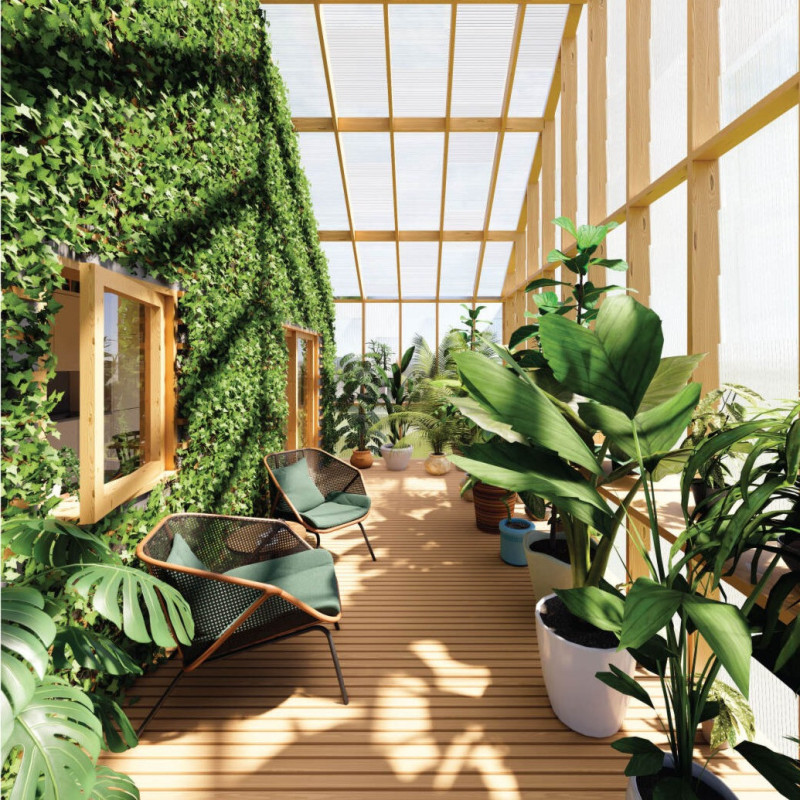5 key facts about this project
Spatially, the design utilizes an open floor plan that enhances flow between functional areas, such as the living, dining, and kitchen spaces. Large windows optimize natural light, creating a sense of connection with the surrounding environment. The main living area is complemented by indoor plants, fostering a biophilic design approach that positively impacts occupants’ well-being.
Sustainable design practices are at the core of the Garden House, which employs a range of low-tech solutions. The structure is built with dimmensional lumber for durability, plywood for interior finishes, concrete blocks for the foundation, and recycled polycarbonate for glazing, blending traditional and innovative materials. The incorporation of solar panels allows for off-grid functionality while a rainwater harvesting system further promotes resource efficiency.
The unique aspect of this project lies in its ability to harmonize modern architectural aesthetics with ecological responsibility. The greenhouse effect achieved through ample glazing not only contributes to passive solar heating but also supports an indoor garden, enhancing the livability of the space. Additionally, features such as composting toilets and gray water recycling systems underline the commitment to minimal waste and resource management.
The Garden House stands out through its versatile design, allowing it to adapt not only to individual needs but also to various environmental contexts. The architectural plans reflect a deep understanding of sustainable living, with a focus on creating spaces that are both functional and nurturing. This project exemplifies how architecture can address contemporary challenges in housing while promoting environmental integrity.
For deeper insights into the design, including architectural plans, sections, and further exploration of architectural ideas that underpin this project, readers are encouraged to review its presentation materials. This examination will provide a comprehensive look at how the Garden House redefines efficient and sustainable living.























